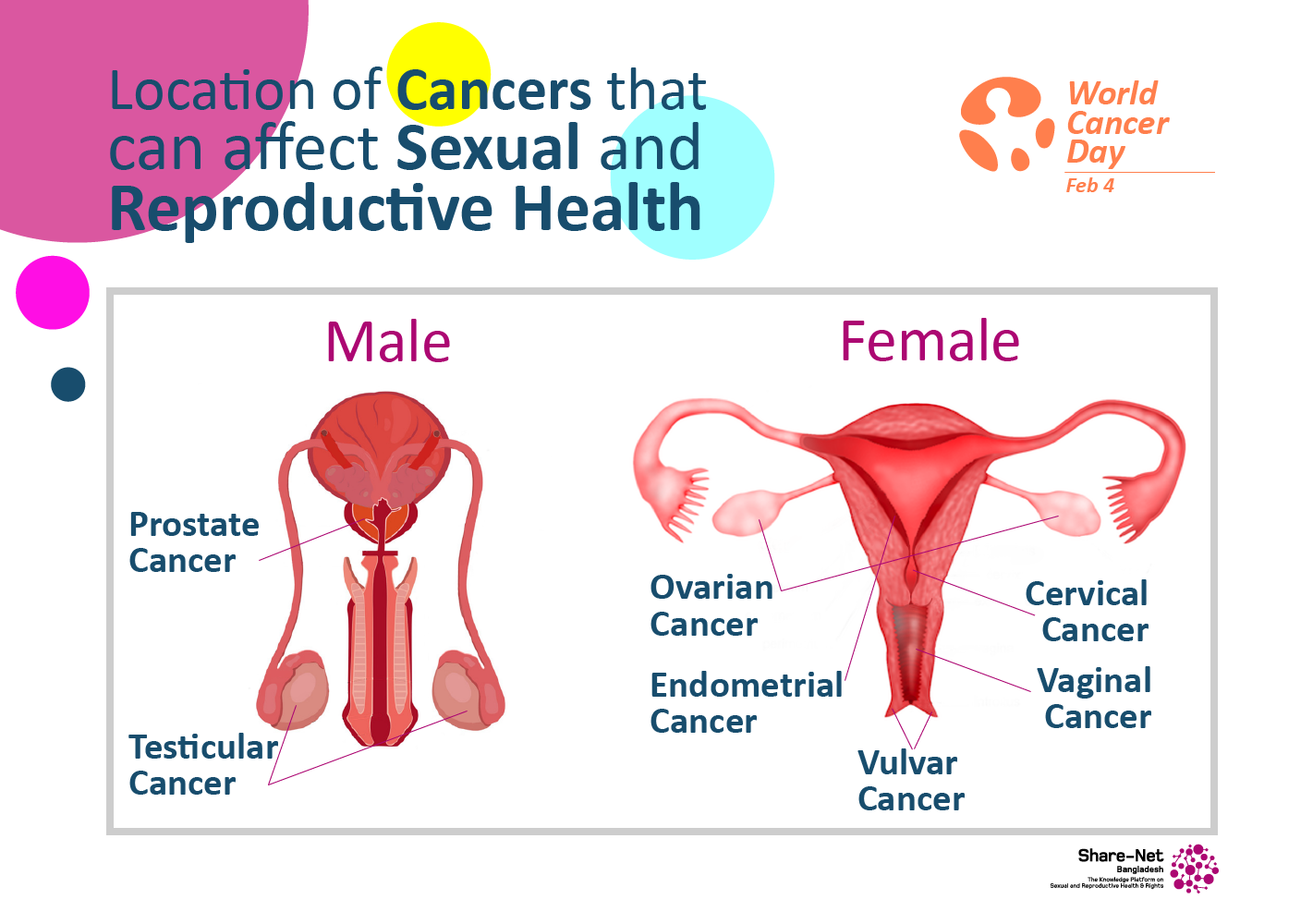Cancers that can affect your Sexual and Reproductive Health
February 4 is observed as World Cancer Day throughout the world. On this day we express solidarity with the ones suffering from cancer, and try to spread information by letting more and more people know about its causes, prevention, detection and cures. This year’s theme for World Cancer Day is ‘I am and I Will’, which means that people all around the world ‘will have the power to reduce the impact of cancer on themselves (and) the people they love.’
Cancer can affect different parts of the body including the genital areas of a man or a woman. Cancer in the genital areas can affect one’s sexual and reproductive health. Genital cancer includes- testicular cancer and prostate cancer in men; ovarian cancer, endometrial cancer, vulvar cancer, cervical cancer and vaginal cancer in women.
Male
According to the Cancer Society of South Africa (2013), the first sign of testicular cancer is the occurrence of a lump on the testicles. You must consult a doctor as soon as you detect any change on your testicles. Early detection of cancer can reduce the risks of cancer spreading by starting treatment as early as possible. The Singapore Society (2014) states: ‘Being familiar with the size, shape and usual level of lumpiness can help you determine if something is not quite right.’
In 2002, there was 6.7 million cancer related deaths worldwide, out of which the second most common cause among men was prostate cancer. One of the first signs of prostate cancer is the presence of too much protein in the blood. Prostate cancer is characterised by a frequent urge to urinate and difficulty to urinate at the same time.
Female
The most common type of cancer among females is cervical cancer. According to Asia Pacific Regional Report, Monograph Series on HPV and Cervical Cancer, every year, 6,600 women die from cervical cancer in Bangladesh. Unfortunately, there is no symptom that can help you detect cervical cancer at an early stage. This is why doctors recommend that women between the age of 25-64 have a cervical screening test once every three to five years. Cervical Cancer Screening refers to the detection and removal of abnormal tissues or cells in the cervix before it develops into cervical cancer, says the National Screening Unit of New Zealand.
Other cancers of the female genitalia include: vaginal cancer, vulvar cancer, ovarian cancer and endometrial cancer. Vaginal cancer and vulvar cancer are rare and easier to treat if diagnosed early. In most cases, ovarian cancer affected women who have crossed the age of menopause. Endometrial cancer is also known as uterine cancer. Unlike other female genital cancers, endometrial cancer can be detected early as one of the symptoms include abnormal discharge from the vagina. The most effective way of treating uterine cancer is by surgically removing the uterus. The decision to remove one’s uterus can be extremely difficult, especially for those who have not yet had any children.
It is important to be aware of all the signs and symptoms that can lead to cancer. You should perform a self-check on yourself on a regular basis to find out if there is anything unusual and abnormal going on with your body. Late treatment and diagnosis of genital cancer can handicap one’s ability to have children, so it is the best decision to have regular check-ups and inform the doctor whenever you discover something unusual with your body.



